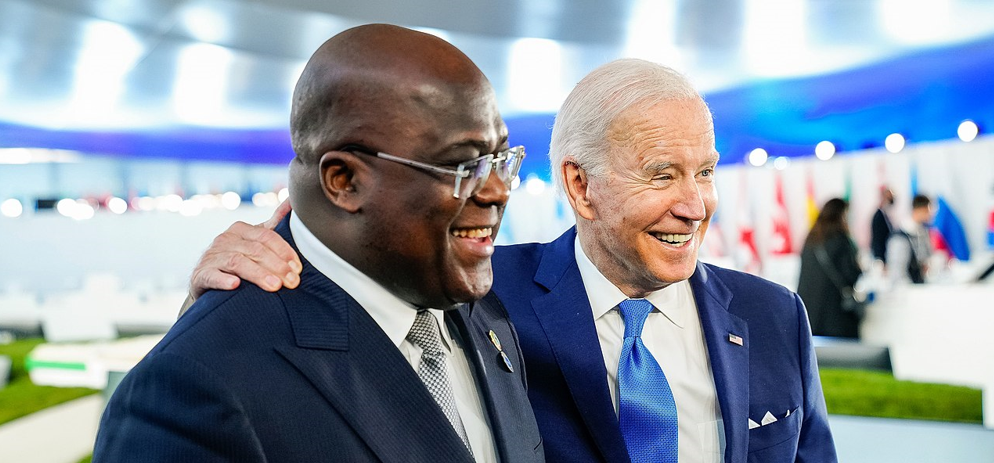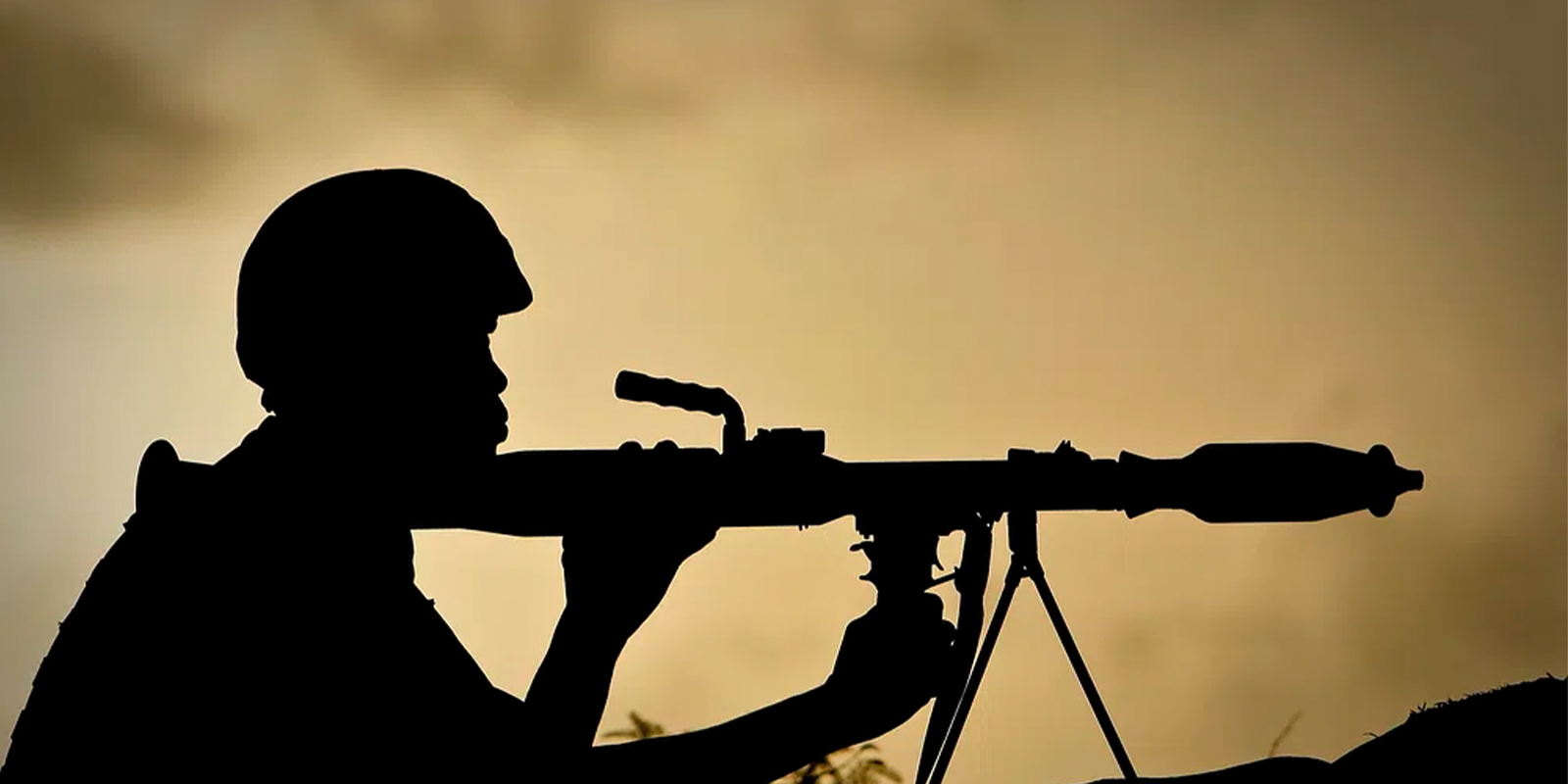News
Rubber Stamping the DRC’s Fraudulent Election Will Not Ensure ‘Stability’
Few were naïve enough to believe the DRC’s harmonised 2023 elections were going to be perfect. Organising a national vote in a country the size of Western Europe, which is home to almost seven million internally displaced by ongoing conflict, with over 100,000 candidates on the ballot, was a near-impossible task. But few could have expected them to turn out as badly as they did.

“The process is going well”, according to Denis Kadima, the head of the DRC’s Independent National Electoral Commission (CENI), just one day before voting was due to begin on 20 December. Two weeks on, it is clear the process was not.
Few were naïve enough to believe the DRC’s harmonised 2023 elections were going to be perfect. Organising a national vote in a country the size of Western Europe, which is home to almost seven million internally displaced by ongoing conflict, with over 100,000 candidates on the ballot, was a near-impossible task.
But few could have expected them to turn out as they did. What transpired on election day exceeded even the worst expectations of many.
A fraught campaigning period defined by political violence, unrest, and uncertainty, preceded an utterly chaotic day of voting.
Polling stations across the country failed to open on time, if at all, leading to a 24-hour voting extension. Some were ransacked, others burnt to the ground. 45% of electronic voting machines had malfunctioned by the end of the first day, according to CENCO-ECC, the Catholic Church’s monitoring mission.
The Church has since implored the CENI to reveal the exact number of polling stations that failed to open. Consequently, it remains unclear how many were prevented from casting their ballot.
The vote was, in the words of the Archbishop of Kinshasa, “gigantic, organised disorder”.
“With enthusiasm, with determination, many of us came out to democratically express our preferences”, Cardinal Fridolin Ambongo told his Christmas Day congregation.
“But alas, what should have been a great celebration of democratic values quickly turned into frustration for many”.
Yet incredibly, Kadima’s CENI managed to extract a result from this madness. The incumbent, Félix Tshisekedi, won a resounding 73% of the vote, an astonishingly high figure considering the last poll published before election day gave him less than 50%. His nearest rival, businessman and football club owner, Moïse Katumbi, came a distant second, with 18%.
That same poll believed Katumbi's vote share was going to be at least ten percentage points higher. Knowing that polls often understate opposition support, the scale of Tshisekedi’s win was somewhat surprising.
Martin Fayulu, who is generally accepted as the actual winner of the 2018 contest that saw Tshisekedi first come to power, won just 5% this time round. He labelled the process a “sham”.
“Any sane person cannot accept [the result]”, he said.
Running SADC-ared
The tactics employed by the CENI echoed those of its counterpart in Zimbabwe in August, where voting was also pushed into a second day. As Mino Bopomi, coordinator of the Congolese citizens’ movement, Filimbi, suggested, voting extensions are often used to manipulate ballot boxes, particularly when they occur at night.
Unlike in Zimbabwe, however, where the Southern African Development Community (SADC) – if not the Commonwealth – noted that “aspects of the Harmonised Elections fell short of the requirements of the Constitution of Zimbabwe, the Electoral Act, and the SADC Principles and Guidelines Governing Democratic Elections (2021)”, criticism of the Congo’s vote was not so forthcoming.
The head of the SADC observation mission, Zambia’s former Vice President Enock Kavindele, issued a preliminary statement in which he stated that voting “progressed smoothly”, despite also admitting that just 2% of the polling stations observed actually opened on time.
Kavindele also “noted that the political situation and security environment in the country was generally calm and peaceful during the pre-election and voting day periods”.
Suppressing rallies, arresting journalists and opposition advisors, and assassinating elected members of parliament, should not be considered “calm and peaceful”.
SADC’s final report is not likely to surface until the end of January. No doubt it will rubber stamp Tshisekedi’s win, with a margin of victory (55%) greater than the entire vote share of Zimbabwe’s President Mnangagwa (53%).
For the sake of ‘stability’
Perhaps unsurprisingly, coverage of events in the Congo has been thin. Once again, the international community has displayed extraordinary levels of apathy towards its plight.
For as long as anyone can remember, the DRC has been a poster child for war, systemic corruption, mismanagement, and violence, ensuring one of the world’s most resource-rich nations remains one of its poorest.
But what happens there matters. The Congo sits atop the largest cobalt deposits in the world. The rare metal is a vital component of the lithium-ion batteries we so desperately need if we are to transition away from fossil fuels. Above ground, it is home to the planet’s second largest rainforest, behind only the Amazon.
Disputes over the legitimacy of the election result will only aggravate the country’s problems. It’s cobalt mines will continue to be plundered by rebels. It’s rainforests will still be threatened by oil companies.
The international community, spearheaded by the US via the facilitation of grants and credit, endorsed 2018’s rigged election in the name of stability. Five years later, perhaps driven by a blinkered focus on critical minerals, it looks like it is doing the same again, yet that stability remains elusive.
M23, a brutal militia known to forcibly recruit child soldiers, terrorises the eastern provinces Ituri and the Kivus, whilst enjoying the patronage of neighbouring Rwanda. 60% of the population remain in extreme poverty, with 26 million people in need of humanitarian aid, an increase of 13.5 million since Tshisekedi took over. An inflation rate of 20% only exacerbates this further.
As soon as the CENI released its preliminary election results on New Year’s Eve, congratulations for the president began to pour in from fellow heads of state, including Burundi, Comoros, Kenya, Malawi, South Africa, Tanzania, Zambia, and of course, Zimbabwe.
The region has already given its tacit approval; the wider international community must not follow suit. It may think that supporting the status-quo will not rock the boat in an already unstable part of the world. This is ignorant at best, malicious at worst.
Tragically, it believes the plight of the Congo’s 100 million are not nearly as important as ‘stability’.



